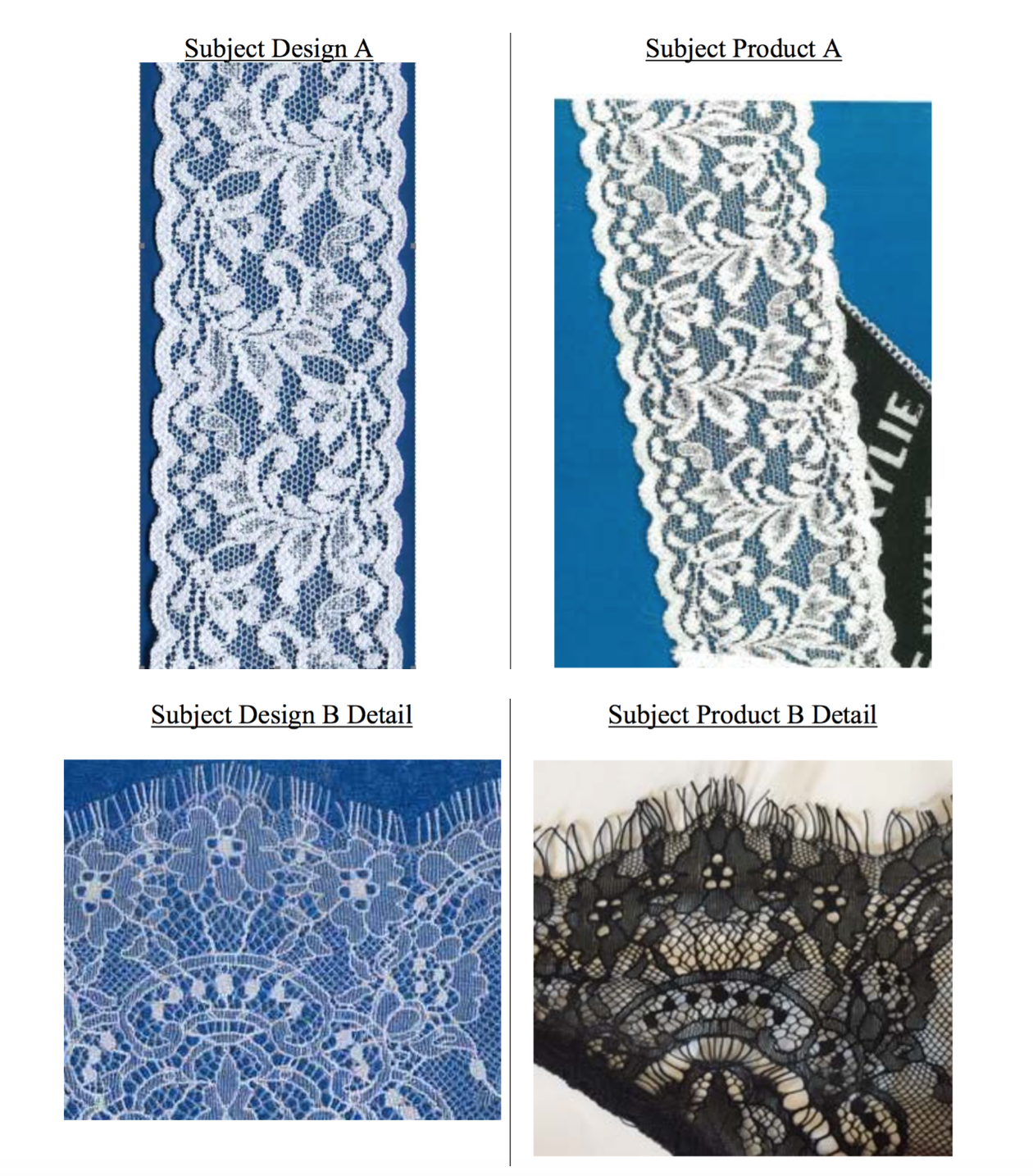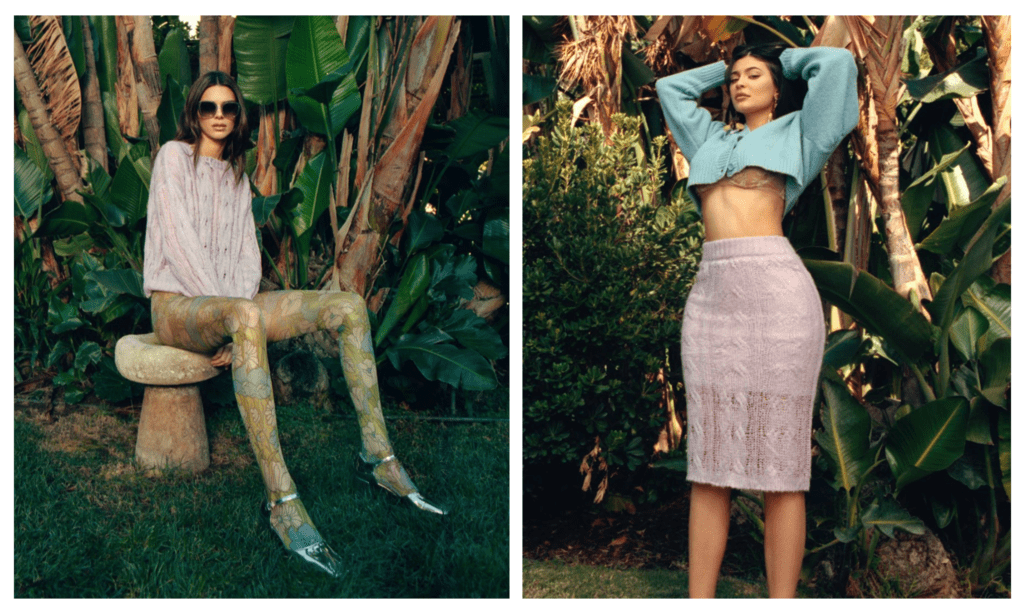Over a period of several decades, Klauber Brothers has made a name for itself as a go-to source for lace patterns for the “fashion and apparel industry” in the United States. In furtherance of this, the New York-headquartered company says it has “sampled and sold over 30 million yards of [one particular] fabric pattern in the U.S.” to a wide affair of brands. One brand that opted to “misappropriate” the pattern and “sell fabric and garments bearing illegal reproductions and/or derivations” of its legally-protected print instead of licensing it? Kendall and Kylie Jenner’s “Kendall + Kylie” collection.
According to the complaint that it filed in a California federal court on Wednesday, lace-making company Klauber Brothers is accusing the corporate entities of the wildly-famous reality television sisters, and Kylie’s e-commerce entity The Kylie Shop, as well as Nordstrom and Jet.com of running afoul of federal copyright law by hijacking one of its lace patterns, and using it to make and sell products – from thong underwear to a mini slip dress – under the Kendall + Kylie collection name.
In its 15-page complaint, Klauber Brothers claims that Kendall Jenner, Inc., Kylie Jenner, Inc., and their various retail partners are in the wrong for “creating, selling, manufacturing, causing to be manufactured, imported and/or distributed fabric and/or garments bearing lace featuring designs which are identical to or substantially similar to [its own lace designs].” To be exact, the company argues that the lace that appears on the Kendall + Kylie wares “makes apparent that the elements, composition, colors, arrangement, layout, and appearance of the designs at issue are substantially similar” to its own original lace pattern, which is protected by copyright law.
 Klauber Brothers “designs” & Kendall + Kylie “products”
Klauber Brothers “designs” & Kendall + Kylie “products”
Not exactly an honest mistake, Klauber Brothers asserts that the defendants committed such copyright infringement “with actual or constructive knowledge of [its] rights, and/or in blatant disregard for [its] rights, such that [their] acts of copyright infringement were, and continue to be, willful, intentional and malicious,” thereby, enabling them to “obtain direct and indirect profits they would not otherwise have realized but for their infringement.” As such, Klabuber Brothers says that it has “suffered substantial damages to its business in an amount to be established at trial.”
Hardly the first time that the famous sisters have come under fire, they were named in a headline-making string of copyright infringement lawsuits for allegedly using (but failing to license) images of rappers Tupac, Notorious B.I.G. and Redman for the wildly controversial “vintage” musician tees they released in July 2017.
Unlike the difficulty that has historically arisen in connection with brands’ attempts to protect the overall design of their garments (due to copyright law’s separability requirement) and the general lack of copyright litigation over the imitation of pieces of clothing as a whole as a result (prior to the Star Athletica decision, at least), lace – just like fabric patterns – is one of the fashion-related things that falls pretty neatly within the scope of protection afforded by copyright law, assuming that the lace design is original, of course.
As such, lace has proven a popular point of litigation for companies, such as Klauber Brothers and others, that have initiated copyright infringement suits en mass in connection with the alleged copyright of their patterns by fashion brands and maybe even more commonly, the third-party suppliers of those brands. Klauber Brothers, alone, has filed suits against Forever 21, H&M, Seven for all Mankind, Target, Tadashi Shoji, Hot Topic, and Urban Outfitters, among others in recent years citing copyright infringement of its lace patterns.
*The case is Klauber Brothers, Inc., v. The Kylie Shop, Inc., Kendall Jenner, Inc., Kylie Jenner, Inc., Nordstrom, Inc., et al., 2:20-cv-00415 (C.D.Cal).











